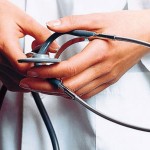There was a big splash in the news recently about a study showing coffee drinking prevented cirrhosis. This seems to have struck a chord with people, and I’ve been getting a lot of questions about the study.
The short answer is, “Yes, drinking coffee does seem to reduce your chances of developing cirrhosis.” However, it’s not that simple so I wanted to dive into this news in a little more depth.
First, the relationship between coffee and cirrhosis is a topic that’s been examined in a number of different studies. For example, Stephen Harrison of Brooke Army Medical Center, one of the principal investigators in our NASH-FX trial and co-lead investigator in our NASH-CX trial, published a paper last year that showed an inverse relationship between coffee consumption and NASH activity, i.e., the more coffee you drank, the milder your NASH.
This most recent study was a meta-analysis of many different studies – a study of studies, if you will. These kinds of studies are very common, having been used to establish all things we know about smoking and lung cancer, for example, or cholesterol and heart disease. In fact, one of the studies used in the meta-analysis was from a heart study group; once you have characterized a large set of individuals for one purpose, you can look at the data generated by that study for other things as well.
There’s a formal, scientific process for undertaking this sort of research that involves culling the entire literature to find every single paper that examines a particular issue – in this case cirrhosis and coffee consumption – and then using a list of criteria to choose the best papers for combining in a meta-analysis. Nine studies met the criteria for this particular meta-analysis, resulting in a total studied population of more than 430,000 individuals. This is a very large sample size, which allows for greater confidence in the findings.
The evidence seems clear that coffee consumption is associated with lower rates of the development of cirrhosis. The study established a dose-response relationship based on the number of cups of coffee consumed per day. To summarize the findings in everyday language, if you increase your consumption of coffee by two cups per day, you decrease your likelihood of developing cirrhosis by half, which is a pretty profound effect.
However, there are many things this study doesn’t tell us: How long do you have to drink coffee to have this effect? At what age do you have to start? If you have liver disease, will drinking coffee help you? If you are out drinking alcohol, will ending the night with a couple of cups of coffee protect your liver? Does the brand or strength of the coffee make a difference? No, that’s not what was studied here (despite what the headline in CNN’s story might imply). It was simply an examination of how many people in this population have cirrhosis – or not –and how much coffee they say they drink. The relationship seems pretty strong, but this research doesn’t answer any of the other questions that people might have.
From a biochemical perspective it makes sense that coffee might have this effect. Many people tend to think of coffee as a dark liquid that has caffeine, but coffee is actually very complex, with hundreds of biologically active compounds. The vast majority of these compounds are taken up by the liver and are metabolized, just as the liver does with anything we eat and many drugs that we take.
This effect doesn’t extend to other caffeine-containing drinks. It appears to be the coffee that provides beneficial effects on the liver, not the caffeine. There have been studies comparing caffeinated with decaffeinated coffee, thereby isolating the effects of caffeine, and it appears likely that it’s not the caffeine that is the important factor. You can’t drink lots of Red Bull® and get the same effect.
What does this mean for patients and for physicians? To me, none of this precludes a common sense approach to liver health, as I published in a previous Perspective. However, coffee does seem to protect against liver disease, and there are other benefits that have been identified for coffee as well, including a reduction in all-cause mortality, neurological disease and some cancers, as recently reported for colon cancer. These benefits are balanced by some potential negative things about coffee. There are far fewer studies that suggest that coffee is bad for you, but there are some. For instance, there’s been a reported association with lung cancer. However, that effect is completely over-shadowed by tobacco use; people often smoke cigarettes while they’re drinking coffee, so it’s unclear that the coffee is to blame.
It’s possible we’ll never truly understand what it is about coffee that is responsible for this effect. There are people conducting experimental studies in animals and in cell lines, looking at the individual components of coffee in an attempt to determine which are having an effect on the fibrotic process. At some point, researchers may identify “compound X” within coffee, but we are a long way from turning this connection into something that would play an active role in the treatment of fibrosis and cirrhosis.
On balance, as a physician looking at these data, I think it makes sense to advise people who enjoy coffee to drink coffee. If coffee doesn’t bother you, and you’d like to have two or three cups a day, go ahead. It may benefit your liver, and there’s nothing like a good cup of coffee. That said, I wouldn’t think it right for a physician to start writing prescriptions for drinking coffee.
These “CEO Perspectives” are a regular feature of our communication activities and may contain forward looking statements within the meaning of the Private Securities Litigation Reform Act of 1995. These statements relate to future events and use words such as “may,” “might,” “could,” “expect” and others. For a discussion of factors impacting Galectin’s business, see the Company’s Annual Report on Form 10-K for the year ended December 31, 2015, and subsequent filings with the SEC. You should not place undue reliance on forward-looking statements. Although subsequent events may cause its views to change, management disclaims any obligation to update forward-looking statements.





